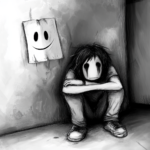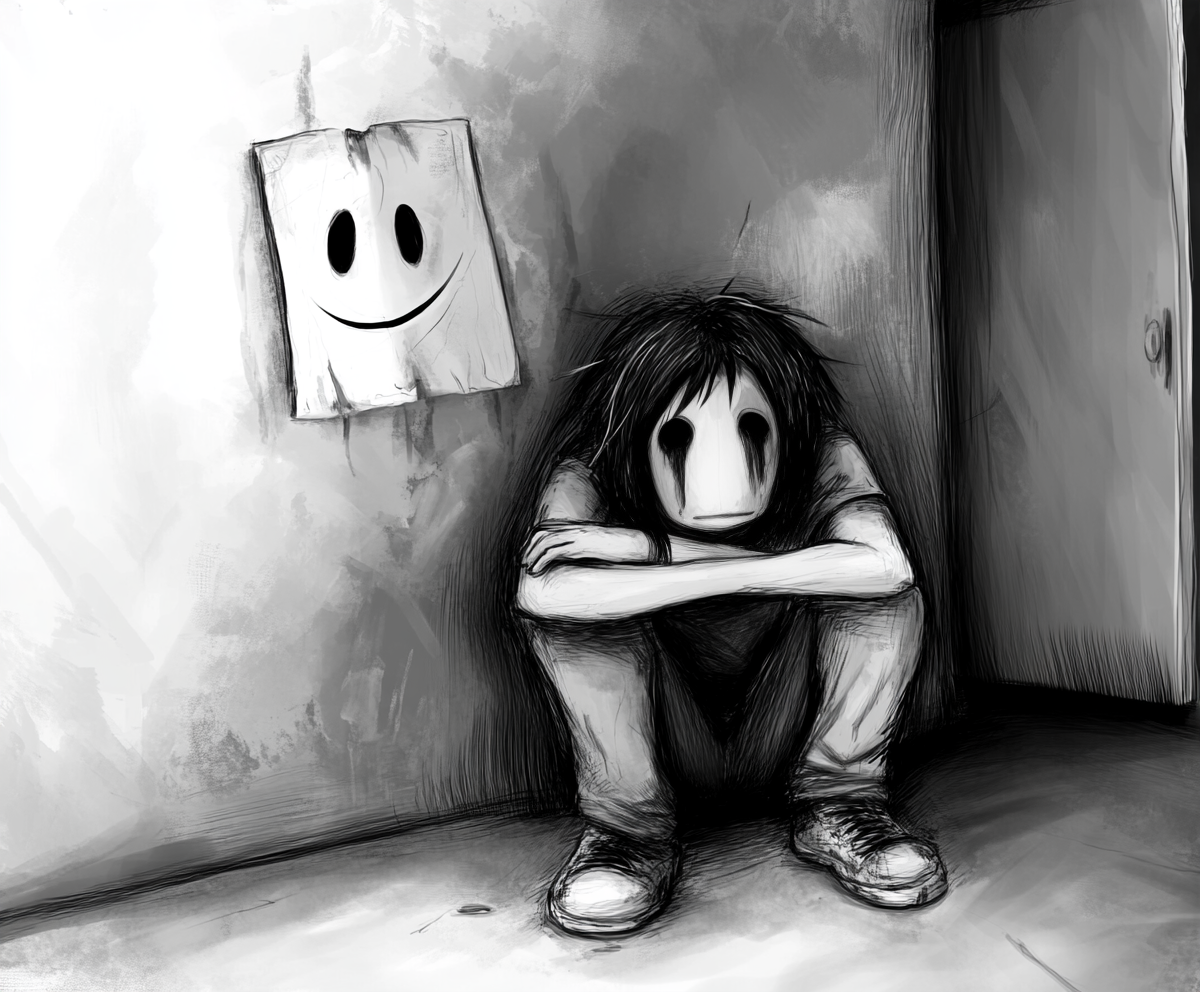Happiness is something everyone seeks, but the pursuit of it is often misguided. Many of us chase fleeting moments of joy, constantly searching for the next thing that will make us happy. Yet, happiness is not a destination you stumble upon—it’s something far more complex and under your control.
The real challenge is recognizing that happiness doesn’t come from temporary pleasures or external circumstances. It requires effort, discomfort, and a shift in mindset. To achieve lasting happiness, we need to redefine what it truly means and break away from the flawed ideas we’ve grown to believe.
The real challenge is recognizing that happiness doesn’t come from temporary pleasures or external circumstances. It requires effort, discomfort, and a shift in mindset. To achieve lasting happiness, we need to redefine what it truly means and break away from the flawed ideas we’ve grown to believe.
What Does Happiness Really Mean?
Happiness can mean different things depending on culture and personal values. For some, it’s reaching career goals, while for others, it’s spending time with loved ones. But the problem with defining happiness this way is that these moments are temporary and external.
Career success may be fleeting, relationships can change, and circumstances beyond our control can upend our lives. When we tie our happiness to something unstable or unpredictable, we set ourselves up for disappointment.
The truth is, living a happy life doesn’t mean being in a constant state of joy. Most of us exist in a neutral state, with peaks of joy and valleys of hardship, and that’s okay. Trying to force happiness into a rigid definition will only leave you unsatisfied.
Career success may be fleeting, relationships can change, and circumstances beyond our control can upend our lives. When we tie our happiness to something unstable or unpredictable, we set ourselves up for disappointment.
The truth is, living a happy life doesn’t mean being in a constant state of joy. Most of us exist in a neutral state, with peaks of joy and valleys of hardship, and that’s okay. Trying to force happiness into a rigid definition will only leave you unsatisfied.
The Never-Ending Search for Happiness
People who spend their lives searching for happiness often never find it. As philosopher Albert Camus said, “You will never be happy if you keep searching for what happiness consists of.” Similarly, historian Yuval Noah Harari pointed out that those who seek happiness often end up the most unhappy.
This concept is echoed in the “backwards law,” which suggests that the more we chase after positive experiences, the more negative our experiences become. Conversely, accepting life’s difficulties can lead to deeper joy.
So, what does this mean for us? It means that chasing happiness can actually lead to misery. If you focus on accepting that life is full of ups and downs, you’ll be able to find joy when you overcome challenges. Instead of obsessing over happiness, embrace life’s struggles—they help shape the person you are meant to become.
This concept is echoed in the “backwards law,” which suggests that the more we chase after positive experiences, the more negative our experiences become. Conversely, accepting life’s difficulties can lead to deeper joy.
So, what does this mean for us? It means that chasing happiness can actually lead to misery. If you focus on accepting that life is full of ups and downs, you’ll be able to find joy when you overcome challenges. Instead of obsessing over happiness, embrace life’s struggles—they help shape the person you are meant to become.
Why You’re Unhappy
Happiness isn’t just about external circumstances. Oftentimes, unhappiness comes from within. If you’re feeling unfulfilled, consider these common reasons:
Lack of Discipline: Pursuing short-term pleasures over long-term fulfillment often leads to regret. When your goals require hard work, it’s easy to quit at the first sign of inconvenience. This lack of discipline creates doubt, dissatisfaction, and self-sabotage.
People-Pleasing: Constantly sacrificing your own needs to make others happy will only drain you. You might win people over in the short term, but over time, the resentment builds. People sense when you lose that inner spark, and they may start to drift away.
Indecisiveness: Inaction is a breeding ground for unhappiness. If you’re constantly second-guessing your choices or holding onto ideas that no longer serve you, you’ll stay stuck in a state of confusion. Sometimes the decision is obvious, but fear of the unknown keeps you from moving forward.
Unhappiness often stems from two things: being upset about things you can’t control or failing to control the things you can. The longer you dwell on what’s out of your hands, the more miserable you’ll become. The key is to focus on what’s within your control—your thoughts, your actions, and your mindset.
Lack of Discipline: Pursuing short-term pleasures over long-term fulfillment often leads to regret. When your goals require hard work, it’s easy to quit at the first sign of inconvenience. This lack of discipline creates doubt, dissatisfaction, and self-sabotage.
People-Pleasing: Constantly sacrificing your own needs to make others happy will only drain you. You might win people over in the short term, but over time, the resentment builds. People sense when you lose that inner spark, and they may start to drift away.
Indecisiveness: Inaction is a breeding ground for unhappiness. If you’re constantly second-guessing your choices or holding onto ideas that no longer serve you, you’ll stay stuck in a state of confusion. Sometimes the decision is obvious, but fear of the unknown keeps you from moving forward.
Unhappiness often stems from two things: being upset about things you can’t control or failing to control the things you can. The longer you dwell on what’s out of your hands, the more miserable you’ll become. The key is to focus on what’s within your control—your thoughts, your actions, and your mindset.
Adding to Your Own Misery
When you’re unhappy, it’s tempting to make choices that only deepen your misery. You might think, “I already feel bad, so why not do things that make me feel worse?” This self-destructive behavior creates a vicious cycle where you drive away others and begin to dislike yourself even more.
But it does matter. Every choice you make matters, and adding to your unhappiness will only push you further into isolation and despair. It’s crucial to break this cycle before it consumes you.
But it does matter. Every choice you make matters, and adding to your unhappiness will only push you further into isolation and despair. It’s crucial to break this cycle before it consumes you.
What Does This Mean for You?
Does this mean you should stop seeking happiness altogether? Not at all. It means you need to shift your perspective. Happiness isn’t an end goal or something you can achieve and hold onto forever. It’s a journey, one filled with both highs and lows.
Instead of chasing happiness, learn to find joy in the process. Focus on the present moments that bring you contentment, even if they are fleeting. Accept that hardships will come, but know that they too will pass.
It’s also important to stop tying your happiness to people, objects, or achievements. These things are uncertain, and they can slip away at any moment. Even when they do, that doesn’t mean your capacity for happiness disappears with them. There will always be reasons to be happy—you just need to adjust your focus and find the light at the end of the tunnel.
Instead of chasing happiness, learn to find joy in the process. Focus on the present moments that bring you contentment, even if they are fleeting. Accept that hardships will come, but know that they too will pass.
It’s also important to stop tying your happiness to people, objects, or achievements. These things are uncertain, and they can slip away at any moment. Even when they do, that doesn’t mean your capacity for happiness disappears with them. There will always be reasons to be happy—you just need to adjust your focus and find the light at the end of the tunnel.
The Story of Your Life Is Still Unfolding
Your story is not finished. Whatever challenges you’re facing now are only a chapter in a much larger book. There are many more chapters yet to be written, and each one will bring its own set of experiences, lessons, and moments of joy.
So, when you find yourself feeling unhappy, remember that this too is temporary. Don’t define your happiness by your current circumstances. Instead, embrace the journey, take control of the things you can, and let go of the need for constant happiness. Only then will you find peace, contentment, and a more lasting sense of fulfillment.
So, when you find yourself feeling unhappy, remember that this too is temporary. Don’t define your happiness by your current circumstances. Instead, embrace the journey, take control of the things you can, and let go of the need for constant happiness. Only then will you find peace, contentment, and a more lasting sense of fulfillment.


Leave a Reply